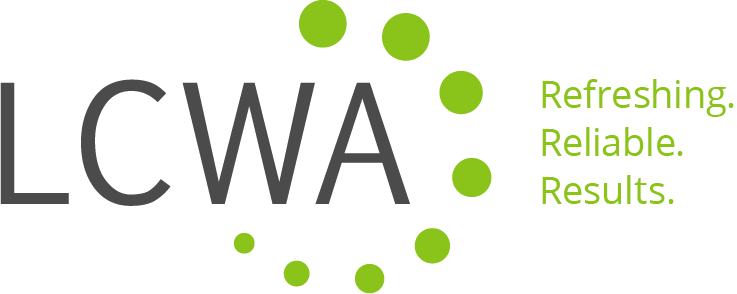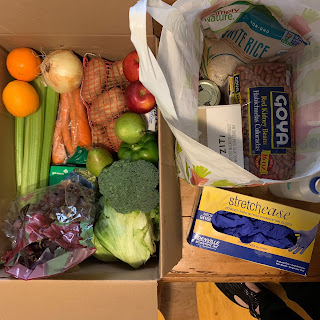May 15, 2020
 The COVID-19 pandemic has created an unprecedented sentiment of unity within Chicago, across the country and around the globe. One member of our team, group manager Lindsey Lucenta, is making an impact in her neighborhood during this time of crisis, with a vision that far exceeds the scope and reach of the virus itself.
The COVID-19 pandemic has created an unprecedented sentiment of unity within Chicago, across the country and around the globe. One member of our team, group manager Lindsey Lucenta, is making an impact in her neighborhood during this time of crisis, with a vision that far exceeds the scope and reach of the virus itself.In mid-March, I reached out to offer my time by filling out an online form to volunteer with a newly started Chicago mutual aid network. There were over 400 people in my neighborhood, Logan Square, who also offered to lend a hand. Given this massive interest, we created the hyper-local Logan Square Mutual Aid. In less than two months, we are now part of a city-wide mutual aid effort, organized neighborhood by neighborhood. With a ‘neighbor-helping-neighbor’ mentality, we are building an infrastructure that encourages community members to play a role in fulfilling the essential needs created during the COVID-19 pandemic and consequent shelter-in-place orders.
Q: What is the goal of your chapter?
To help people who are struggling during COVID. We focus on helping the vulnerable – the elderly, the disabled, those with immuno-deficiencies. Given this wide-reaching scope, we have several teams which each focusing on specific community needs – including food, healthcare and social work, to name a few. Everything from helping individuals get groceries, to offering legal services to those who need assistance as tenants.
Q: What does your specific role look like?
I’m the food distribution coordinator. My role is to oversee local business outreach to secure donations, track inventory, train volunteers, and coordinate delivery of food boxes to individual and families. Primarily, we’re collecting food during the week, then distributing on the weekends. We recently secured a storage space with refrigerators and tables (a big win!), and a few Chicago alderman have donated PPE to ensure we follow safety protocol. As we grow, we plan to equip our space to handle larger donations and more food deliveries.
We’ve partnered with Food Not Bombs, an organization that works with the food service industry to collect what would otherwise be wasted food. However, as many restaurants have closed, their normal supply chain has been cut off. So we have been collaborating on best practices to secure large-scale or ongoing food donations from Chicago businesses and residents. I volunteered with them to learn their processes for sanitization, food packaging and delivery During the pandemic, constant cleaning of supplies and hand washing is essential. And, thanks to our collaboration, we were able to secure the aforementioned storage space.
Q: How have you seen the ‘neighbor-helping-neighbor’ concept come to life?
It’s really a concept of ‘solidarity, not charity,’ which is the cornerstone of the mutual aid movement. Some of the core values that we model our structure on are engagement, transparency and self-determination. For example, we have neighbors who are receiving groceries each week due to economic hardship as a result of the pandemic. Simultaneously, these same individuals also have cars or bikes and have volunteered their time and vehicles to deliver groceries. We have had hundreds of individuals who have offered to buy groceries for their neighbors out of their own pocket. We’re now obtaining the funds to pay them back, but the selflessness and graciousness has been so inspirational.
Q: What is the vision for Logan Square Mutual Aid looking past the pandemic?
I definitely see our organization evolving to meet community needs. Even after the virus is no longer an immediate threat, the economic effect is going to be residual. I am honored to be surrounded by so many intelligent, passionate people who are working together to build a grassroots, community-driven organization that directly serves our neighborhood.
Thank you for all you do, both for your community and LCWA! We’re excited to see our team making an impact.

